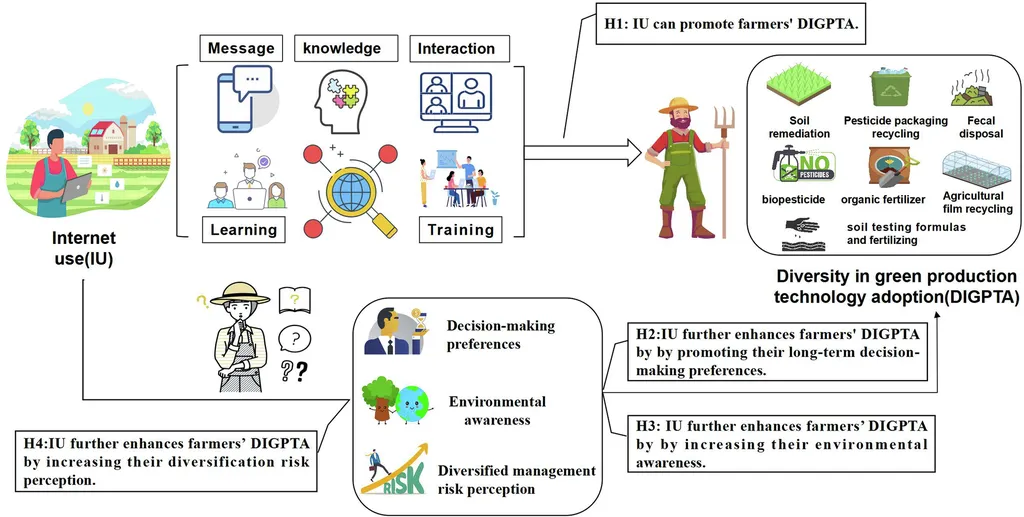In the pursuit of food security, mineral fertilizers have long been a staple in agricultural production. However, their excessive use has led to significant environmental challenges, particularly in China. The overapplication of chemical fertilizers has resulted in soil nutrient imbalances, reduced soil fertility, water pollution, and deteriorated air quality. In response to these issues, organomineral fertilizers (OMF), a greener alternative, have been introduced. OMF combines organic materials with a small amount of mineral fertilizers, balancing nutrients, reducing environmental pollution, and improving crop yield and quality.
Despite these benefits, the adoption rate of OMF has remained relatively low, particularly among smallholder farmers in remote areas. This can be attributed to information asymmetry, where farmers lack awareness of OMF and have limited understanding of its technical requirements. Enter digital agricultural technology extension services (DATES), which leverage Internet platforms such as WeChat official accounts and mobile applications to provide a new pathway for agricultural technology dissemination. These services overcome the temporal and spatial limitations of traditional agricultural technology extension, enabling farmers to conveniently access planting knowledge.
A recent study led by Professor Minjuan Zhao from the College of Economics and Management at Northwest A&F University sought to determine if DATES could effectively encourage farmers to adopt OMF and contribute to the green transformation of agriculture. The research, published in Frontiers of Agricultural Science and Engineering, surveyed 1167 apple-growing households from Shaanxi and Gansu provinces. The findings revealed that farmers who used DATES had a 7.2%–10.2% higher probability of adopting OMF compared to non-users, with the adoption intensity increasing from 7.0% to 9.9%. This indicates that digital agricultural technology extension services can indeed drive farmers towards more environmentally friendly fertilization methods.
The study delved deeper into the mechanisms through which DATES promotes OMF adoption. It found that DATES enhances farmers’ cognition of the value of OMF, helping them understand its economic, ecological, and social benefits. Additionally, DATES reduces the cost of obtaining agricultural information, allowing farmers to easily access planting technologies and market dynamics, thereby reducing information asymmetry and lowering risks.
The effectiveness of DATES was also found to vary depending on the characteristics of farming households. Farmers with higher social capital and better economic conditions benefited more from DATES, suggesting that policy promotion should consider the heterogeneity of farming households and implement targeted measures.
This research provides empirical evidence for promoting the sustainable development of agriculture. It recommends strengthening rural digital agricultural infrastructure, improving the accessibility of DATES, and combining online and offline channels to popularize green production technologies. Additionally, it suggests formulating differentiated strategies for farmers with varying levels of social capital and economic status, prioritizing those with high responsiveness to lead in OMF adoption and helping those with low responsiveness overcome bottlenecks in funds and information.
As the world grapples with the environmental impacts of conventional farming practices, this study offers valuable insights into how digital technologies can facilitate the adoption of greener alternatives, paving the way for a more sustainable agricultural future.

